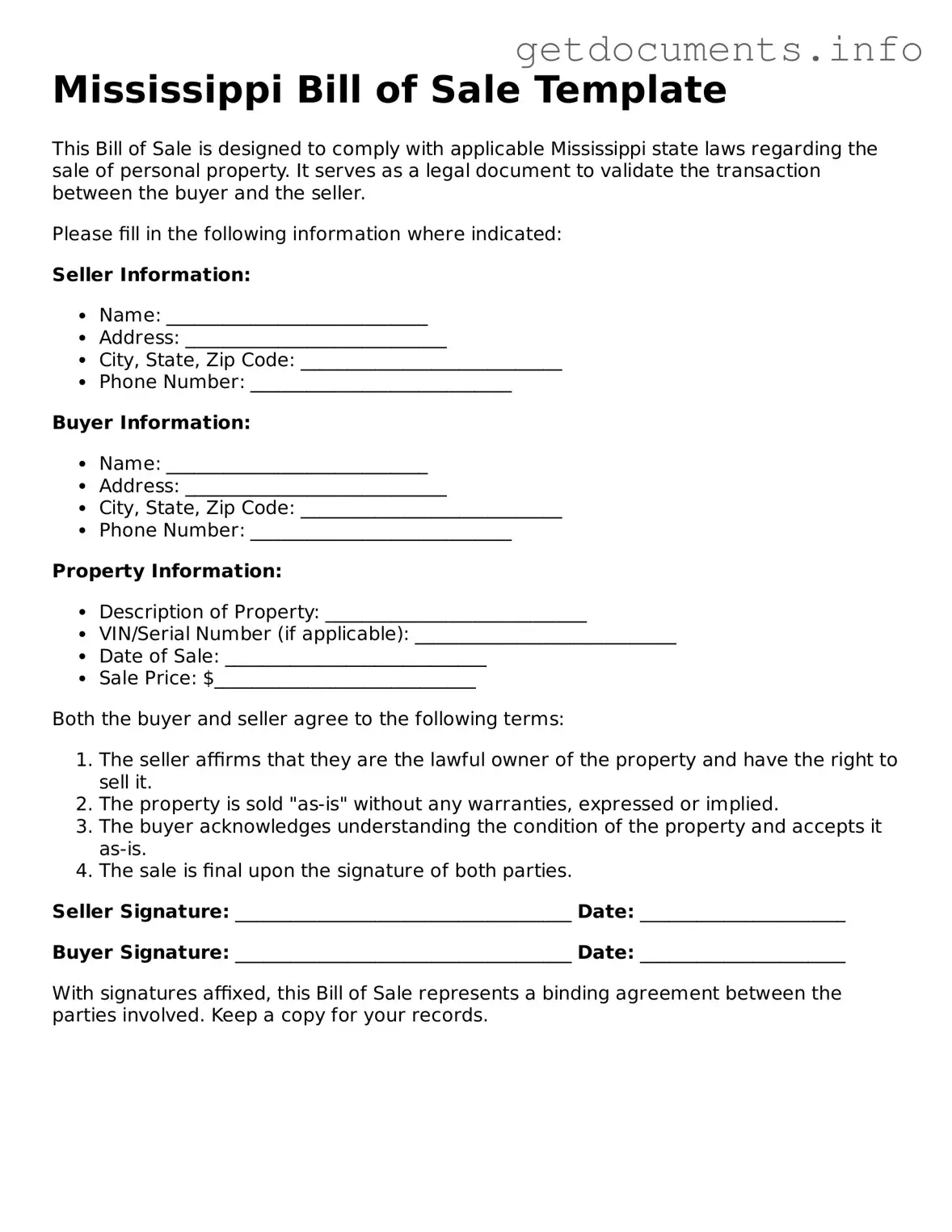Free Bill of Sale Template for Mississippi
A Mississippi Bill of Sale is a legal document that serves as proof of the transfer of ownership of personal property from one individual to another. This form is essential for documenting transactions involving items such as vehicles, furniture, or equipment, ensuring both parties have a record of the sale. If you're ready to complete your transaction, fill out the form by clicking the button below.
Access Bill of Sale Editor

Free Bill of Sale Template for Mississippi
Access Bill of Sale Editor
Got places to be? Complete the form fast
Fill out Bill of Sale online and avoid printing or scanning.
Access Bill of Sale Editor
or
⇩ PDF File
